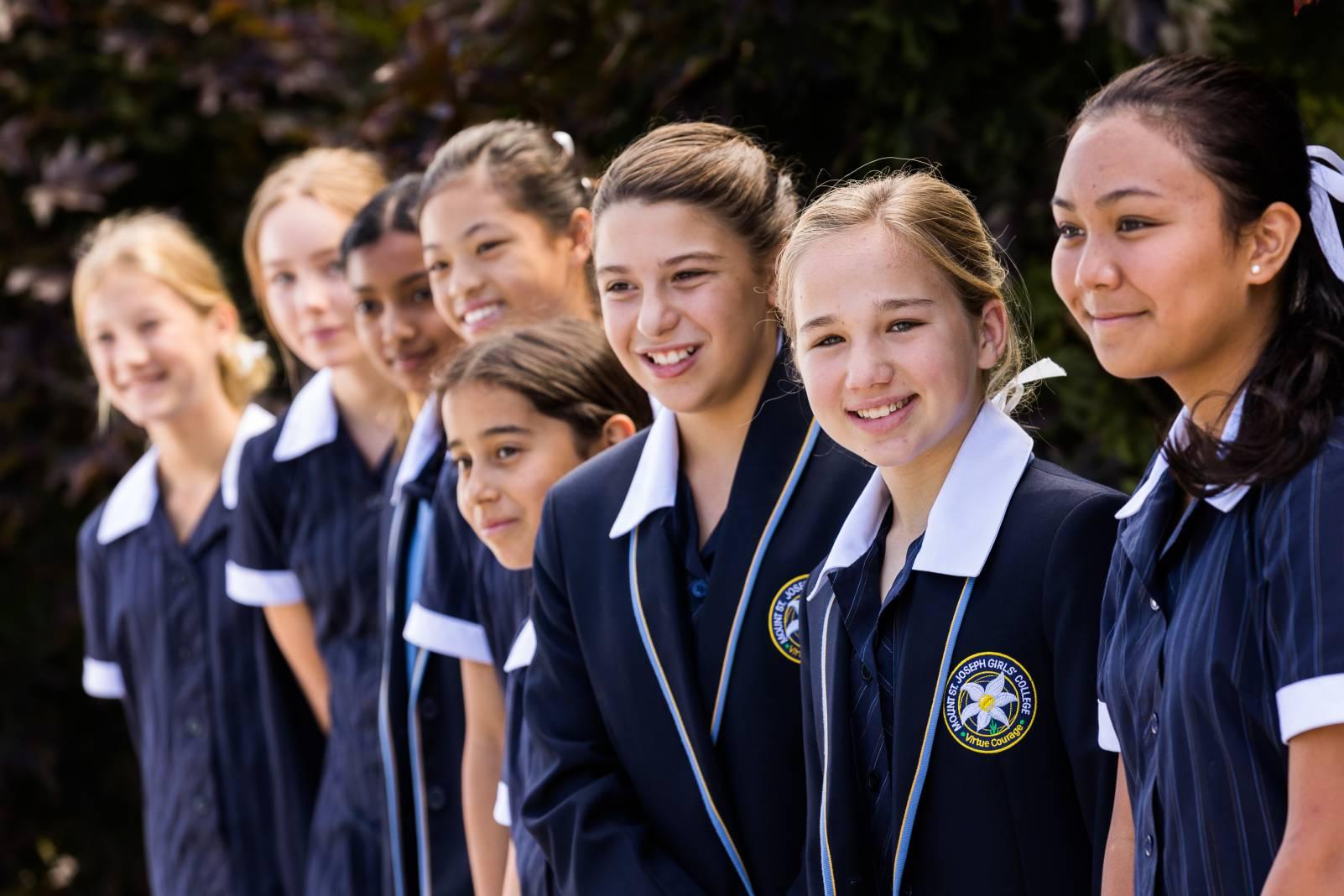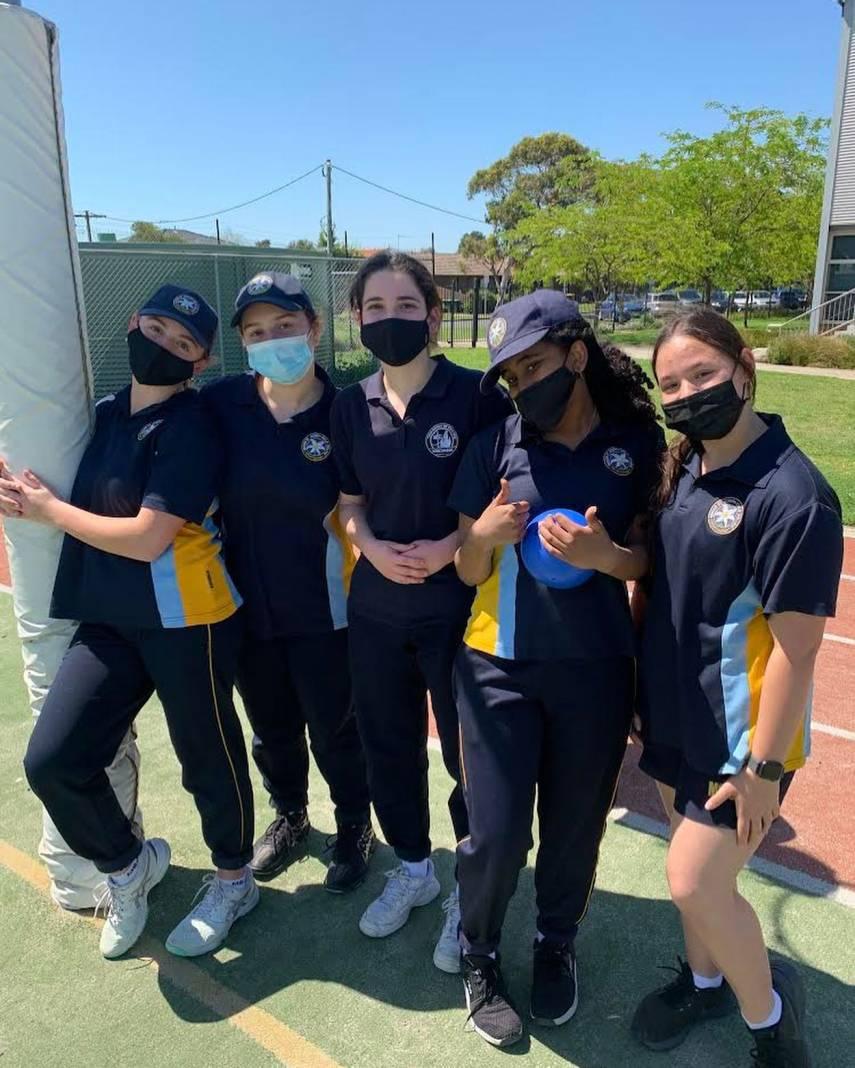It has been an exciting couple of weeks to see our students return to the College. Our students have been physically away from the College for up to fourteen weeks - this is even longer than a year’s worth of school holidays. This return to face-to-face learning is an excellent opportunity to reset and to reconnect with our wonderful MSJ community. The energy of our Year 7 students, the excitement of the Year 9 students and the strength of our Year 12 students, as they entered the examination period, was infectious.
Whilst the pandemic has challenged many of us, l am constantly reminded of the need to have an optimistic and hope-filled outlook. The only constant in life is change and that in life we will always be faced by challenges. We cannot foresee or plan everything, sometimes we have to adapt and accept that is not always what we imagined.
Throughout the past two years, nature has shown us how to be resilient and to adapt. Recently, l came across a possum living in our rose bush in the front yard. It was battered and bruised, but it found a new home and a new purpose. As we enter the final term, the home stretch, we ask that you work with your daughter to help her find hope and optimism in this challenging time. We are here to work with you to promote growth and to allow all our students to flourish.
With every blessing,
Steven Mifsud - Deputy Principal (Student Wellbeing)
Please, for just a moment, picture yourself in one of our school presentations to students. From Year 3 to Year 12, we ask the same questions around group chats.
They are:
So let’s break these down into nice little bite-size pieces on what you should do.
Group chats can be an excellent way for many people to participate in an online conversation together. They can also be a place where drama, nasty behaviours, exclusion, and bullying can thrive. The most commonly used group chat apps are WhatsApp, Snap Chat, Instagram, Discord, Messenger, and Facebook Messenger. They can be both helpful and harmful. We recommend that children in Primary School only use Facebook Messenger for Kids, so parents have some control over what is going on in the group chat. You don’t have as much power on the other apps.
We have real concerns about the number of young people (as young as eight in most cases) that sleep with devices in their room and under their pillow. They are responding to messages at 11, 12, even 1am. From “friends” all over the world that they are connected to.
Please make sure you put a healthy boundary in place and keep phones and devices out of the bedroom from an early age. Remember, you are the parent, and you need to guide your children on how to be safe, and managing their mental health is a massive part of that. They need a break. They are connected 24/7, and some of those communications can get toxic in Group Chats. They need sleep. Good uninterrupted sleep. Rolling over in the middle of the night and checking messages is a significant health issue. You can read about that here: https://growingupinaustralia.g...
There have also been many times when young people have engaged in nasty behaviour about another person in a group chat, then deliberately invited that person into the chat to see those comments. The deliberate nature of this abuse makes it cyberbullying. Re-adding someone once they have left a chat can also be bullying or harassment in some cases.
When they are tired, they are more emotional and less resilient. Things can and may be taken out of context. No-one has the right to choose what other people find offensive. There have been countless times when this has resulted in schools being contacted because of the nasty, bullying or inappropriate things happening in the chat. If this is happening in the home after hours between students, please think about how, as a parent, you can do more to support the school by setting healthier boundaries for device use in your home.
Schools have a duty of care to minimise the risk of bullying and other dangers to a child, but it is challenging for them to police when the device is at home, under your roof, in your child’s bedroom.
Help kids develop the skills to know how to leave a group chat that is not helpful or is harmful in any way, including the actual words they may use should they need to leave. With younger kids, teach them how to come up with statements that may help like, “Sorry guys, this is getting pretty nasty, I’m outta here” as a way to remove themselves. Also point out to the other people in the chat that the behaviours may be getting out of hand. Being in charge of their online interactions and knowing how to leave a conversation that makes them uncomfortable online or off is a vital life skill.
Kids need to realise that they may be “guilty by association”, even if they aren’t saying the nasty stuff; they may be considered a bystander if they do not report it and speak up about what is happening in a group chat.
Please help them to develop the skills to put boundaries around their friendships. We don’t have to be accessible all the time just because technology allows that. They need to know that they won’t lose friends if they are not available in the group to chat for 30 minutes while they have dinner. Young people need to be in charge and confident in their relationships. They need to know that their friends will understand that their refusal to engage at every moment of the day and night has nothing to do with the state of their relationship, but rather the management of their time, their devices and their life priorities.
If your child is getting constantly re-added to a group chat that they have left, that can be considered harassment. If your child is re-adding people that have left the group chat, remind them that they need consent. They need to ask the permission of the person first, “Do you want to be re-added to the group chat?” for example.
Parenting in this space is very difficult at times, we totally understand that. But please set boundaries and rules. These are required from a very early age. The earlier the better. A school should not be blamed every time something happens online as it is often something that they can’t 100% control if you have given your child a device and have different rules at home to what is at school. Schools educate students on cyber safety. Most schools offer parent education, in all aspects of online safety, and often only a few parents turn up to parent-focused talks. Please attend, I guarantee you will learn something new every time!
Things to remember:
Article courtesy of Safe On Social. Visit them at https://www.safeonsocial.com/






